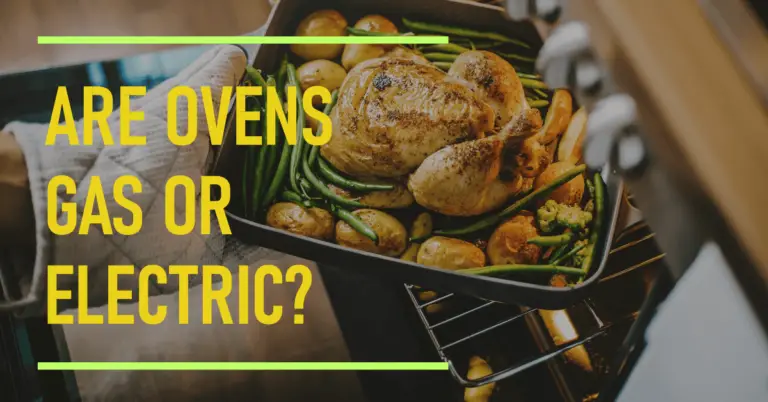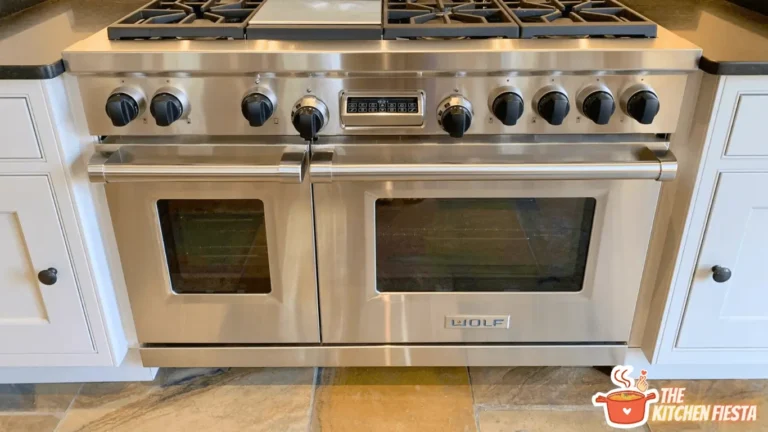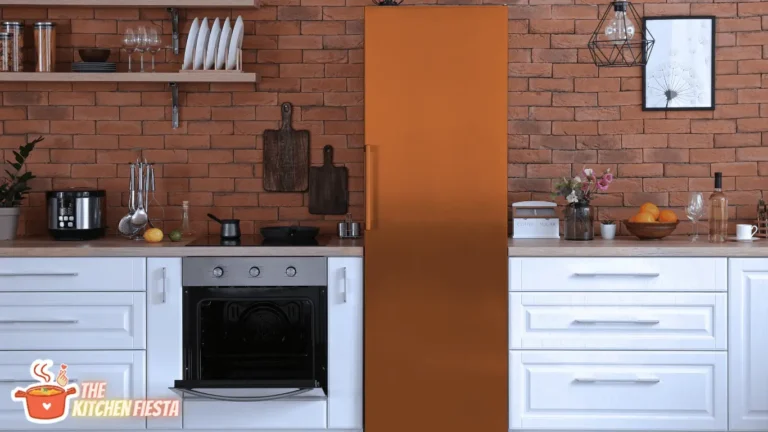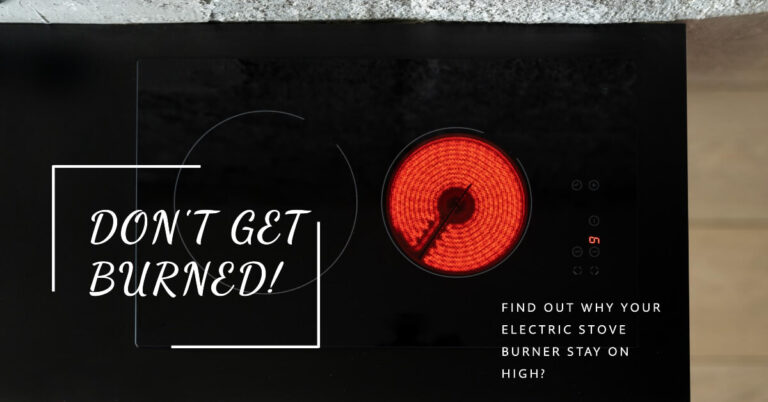Why Does My Induction Cooktop Keep Turning Off? Troubleshooting Guide
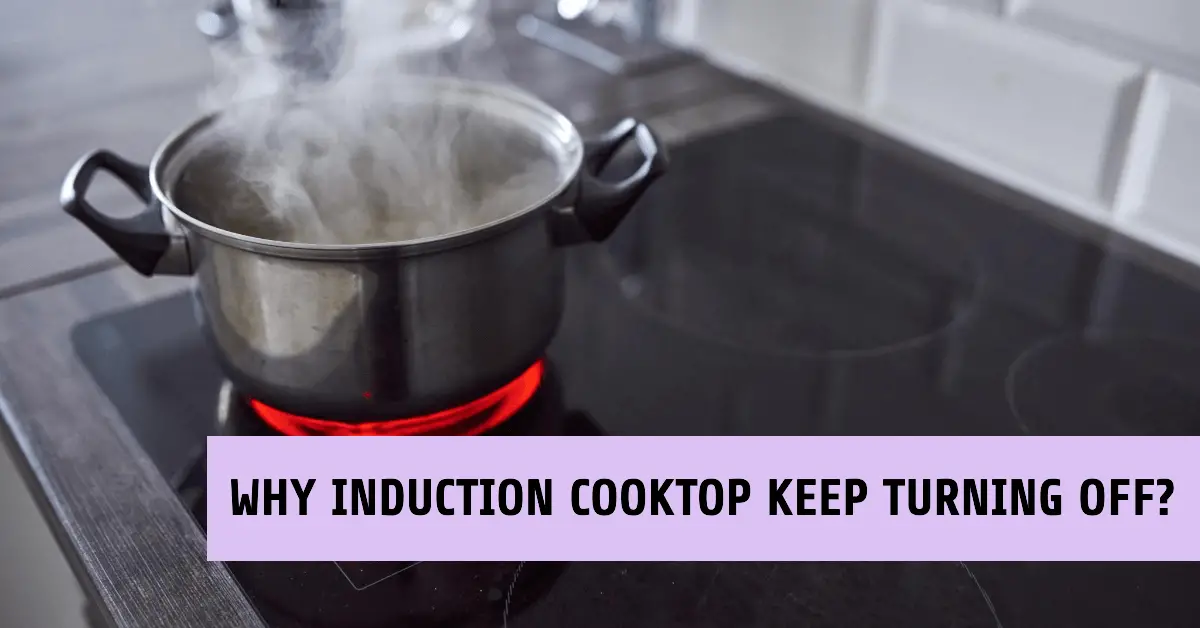
Induction cooktops provide fast, energy-efficient cooking experiences. But these high-tech appliances can also be frustrating when they don’t work properly. If your induction cooktop keeps randomly turning off, it interrupts meal preparation and creates safety issues.
Why does my induction cooktop keep turning off? There are several potential causes, from unsuitable cookware to faulty electrical connections. The good news is that you can often resolve the issue with some simple troubleshooting and maintenance.
In this comprehensive guide, we’ll cover:
- The benefits and drawbacks of induction cooktops
- Common reasons an induction cooktop may turn off
- Troubleshooting tips to prevent your induction cooktop from turning off
- FAQs – Answers to common induction cooktop problems
- How to enjoy the advantages of induction cooking
After reading, you’ll understand the most likely reasons your induction cooktop keeps turning itself off and have actionable steps to troubleshoot the problem. Let’s get cooking!
Introduction – The Benefits and Drawbacks of Induction Cooktops
Induction cooktops have become increasingly popular in recent years and for good reason. Induction cooking uses electromagnetic energy to heat pots and pans directly, making it faster and more energy-efficient than traditional electric or gas stoves.
Some key benefits of induction cooktops include:
- Very fast heating – Induction cooktops can boil water up to 50% faster than gas or electric ranges.
- More energy efficiency – Induction cooking directly heats the pan so less energy is lost. It’s 70-80% more efficient than a gas burner or electric coil.
- Improved safety – The cooktop surface doesn’t get as hot so there’s less risk of burns. Induction cooktops are also cool to the touch minutes after use.
- More accurate temperature control – Induction burners allow very precise adjustment of heat levels.
- Easy cleaning – Without hot grates or electric coils, induction cooktops have smooth surfaces that are simple to clean.
However, induction cooktops have some downsides to be aware of:
- They require specific cookware – Pots and pans must be made of a ferromagnetic metal like cast iron or stainless steel. Not all materials work.
- Sensitive electronics – The electronic components are more prone to problems than simple gas or electric stoves.
- Risk of turning off unexpectedly – Faulty installations or issues like overheating can cause the cooktop to randomly shut off while in use.
Understanding both the pros and cons will help you decide if an induction cooktop is right for your kitchen. And if you already own one, knowing what causes them to turn off unexpectedly can help resolve problems quickly. The most common reasons are covered next.
Common Reasons an Induction Cooktop May Turn Off
There are a several possible causes why your induction cooktop may keep turning itself off without warning:
Using Unsuitable Cookware
One of the most frequent reasons an induction cooktop will turn off is if the wrong type of cookware is used.
Induction cooking relies on an electromagnetic field induced by copper coils beneath the glass surface. This field causes molecules in ferromagnetic metals like cast iron or stainless steel to vibrate rapidly, heating up the pan.
For induction cooking to work properly, pots and pans MUST be made of a compatible material and have a ferromagnetic base. Not all metals work.
Common unsuitable materials that will cause an induction cooktop to shut off include:
- Aluminum
- Copper
- Glass
- Ceramics
- Pyrex
- Heat-resistant plastics
Always verify your cookware is specifically designed for induction cooking before use. The manufacturer’s instructions will clarify if your existing pots, pans, and other vessels are compatible.
If you place an incompatible pan on the cooking zone, the induction cooktop will not detect the pan and turn itself off after a short time due to inactivity. This is normal.
Simply replace the pan with one made of cast iron, stainless steel, or other ferromagnetic material and the induction burner will heat it up.
Insufficient Power Supply
Induction cooktops require more electrical power than traditional electric ranges. They typically need 240V circuits to function properly.
If your home’s electrical system can’t provide adequate power to the induction cooktop, it may overheat and shut off as a safety precaution.
Causes of underpowered circuits include:
- Older home with 100V or 120V service (240V required)
- Small gauge wiring unable to handle the load
- Tripped breaker from overcurrent
- GFCI outlet frequently trips due to moisture
If insufficient voltage is suspected, you may need an electrician to evaluate your electrical panel and cooktop hookup.
Upgrading to thicker wiring or installing a dedicated circuit for the induction cooktop may resolve power-related shutdowns.
Overheating
Induction cooktops rely on electronic components like microprocessors, temperature sensors, and cooling fans to control cooking temperatures precisely.
If these internal parts overheat from extended high-temperature cooking, blocked ventilation, or even a failed sensor, the appliance will turn itself off as a safety precaution against fire or damage.
Pots and pans that are poor at conducting heat can also cause hot spots that lead to overheating. Some signs your induction cooktop is too hot include:
- Burning plastic smell
- Visible smoke
- Display error codes
- Loud cooling fan noise
Allowing adequate air circulation around the cooktop and avoiding excessive stacked cookware can help prevent overheating shutdowns.
Safety Features Being Triggered
Modern induction cooktops contain various safety features that will automatically power off the unit if a hazardous condition is detected.
For example, if a high cooking setting is left on for an extended time with no pan present, built-in sensors will shut down the zone before overheating occurs.
Other examples of safety triggers that can cause the induction cooktop to turn off include:
- No pan detected
- Pan removed without adjusting setting
- Heavy spillage
- Unit tipped or improperly installed
- Child safety lock activated
Review your owner’s manual and verify the induction cooktop is used as intended to avoid triggering safety shutdowns during normal cooking tasks.
Faulty Cooktop
Like any appliance, it’s possible your induction cooktop has developed an internal fault causing it to malfunction and power down.
Potential issues include:
- Defective cooking zone coil
- Damaged control board
- Failed temperature sensor
- Software glitches
Generally, more persistent or frequent shutdowns point to an appliance defect rather than user error.
If you’ve addressed the other common causes like cookware, electrical issues, and overheating without improvement, it’s likely a hardware problem exists within the induction cooktop.
Repairs from a qualified appliance technician may be required.
Now that you know why your induction cooktop may keep turning itself off, let’s look at some steps to prevent future problems.
Troubleshooting Tips to Prevent Your Induction Cooktop From Turning Off
While induction cooktops can certainly be frustrating if they constantly shut down mid-cooking, there are ways to minimize uncontrolled shutoffs:
Use the Right Cookware
The first step is ensuring you use suitable pots and pans.
Induction cooking requires ferromagnetic cookware made of:
- Cast iron
- Stainless steel
- Enameled steel or iron
- Magnetic composite materials
A magnet will stick to bottom if the pan will work.
Avoid cookware like copper, glass, aluminum, ceramic, and heat-resistant plastic.
Refer to the manufacturer’s recommendations and only use pans clearly identified as induction ready.
Check Your Home’s Electrical System
Verify your kitchen’s electrical service can handle an induction cooktop’s high power demands, especially on a shared circuit.
Common fixes for insufficient current include:
- Upgrading to thicker gauge wiring
- Installing a dedicated circuit and 240V outlet
- Getting a higher capacity electrical service panel
Consult an electrician if tripped breakers or overload is suspected.
Allow Proper Ventilation and Cooling
Don’t block the internal cooling fans or vents around the edges of the appliance. Leave some space behind and beside the cooktop for airflow.
Avoid placing any heat-sensitive materials on top or near the surface while in use.
Use cookware that makes full contact with the cooking zone coils to prevent uneven hot spots.
Don’t operate multiple burners at ultra-high temps for extended periods – turn down settings after food begins heating.
Reset Safety Features
If a safety sensor tripped, unplug the induction cooktop for 30 seconds after it shuts down to reset the internal controls.
Double check the user manual for proper operation procedures if nuisance safety shut offs occur.
Keep the Cooktop Clean
Regularly wipe down the glass surface after each use to prevent debris, spills and other contaminants from interfering with sensors.
A buildup of dirt and grime can prevent the unit from properly detecting pans.
Calling an Appliance Repair Technician
If you’ve tried the troubleshooting tips without success, it may be time to call in a professional appliance repair technician. Technicians have the experience, skills and tools to properly diagnose and fix induction cooktop issues.
When calling for service, be prepared to provide:
- The brand, model and serial number of your induction cooktop. This helps the technician know what parts and tools to bring.
- Details about the issue like when it occurs, any error messages, noises, etc. Describe the problem in as much detail as possible.
- Information about your electrical service, like the voltage of the circuit for the cooktop.
- Notes on any fixes you’ve tried so the technician doesn’t repeat steps.
During the visit, ask questions about what’s causing the problem and how to prevent it going forward. Quality technicians will take the time to explain what they find and address your concerns.
Hiring a qualified professional avoids the risks of DIY repairs and ensures your induction cooktop is safely fixed. Appliance services may cost $100 or more per hour, but give you peace of mind knowing the repairs are done right.
FAQs – Answers to Common Induction Cooktop Problems
Here are quick answers to some of the most frequent questions people have about induction cooktops randomly turning off:
Why does my induction cooktop beep and turn off?
The beeping likely indicates an error code from the internal controls. Common causes include incompatible cookware, spilled liquids, or activated child lock. Check the display or user manual for the specific fault.
Why does my induction stove keep shutting off?
Frequent shutoffs of an induction stove suggest an electrical issue like underpowered service, bad wiring, or tripped breaker. An electrician can determine if your power supply is sufficient.
Why does my induction range keep turning itself off?
If an induction range works initially but shuts down after use, overheating is likely the issue. Allow units to fully cool after use and check for blockage of ventilation openings.
Conclusion – Enjoying the Benefits of Induction Cooking
Induction cooktops provide fast, energy-efficient cooking, but can certainly be troublesome if they constantly turn off mid-use.
By understanding the most common reasons an induction cooktop may shut down unexpectedly, you can troubleshoot many problems yourself.
Simple fixes like using the proper cookware, ensuring adequate electrical service, allowing cooling time, and keeping surfaces clean will prevent a lot of issues.
For frequent or unresolved shutdowns, don’t hesitate to call in a professional appliance repair technician to accurately diagnose and fix internal faults.
With a properly operating induction cooktop that stays powered on, you can enjoy safer, faster, and more precise cooking results. Just be prepared to do some troubleshooting if your new high-tech cooktop starts inexplicably turning itself off.

